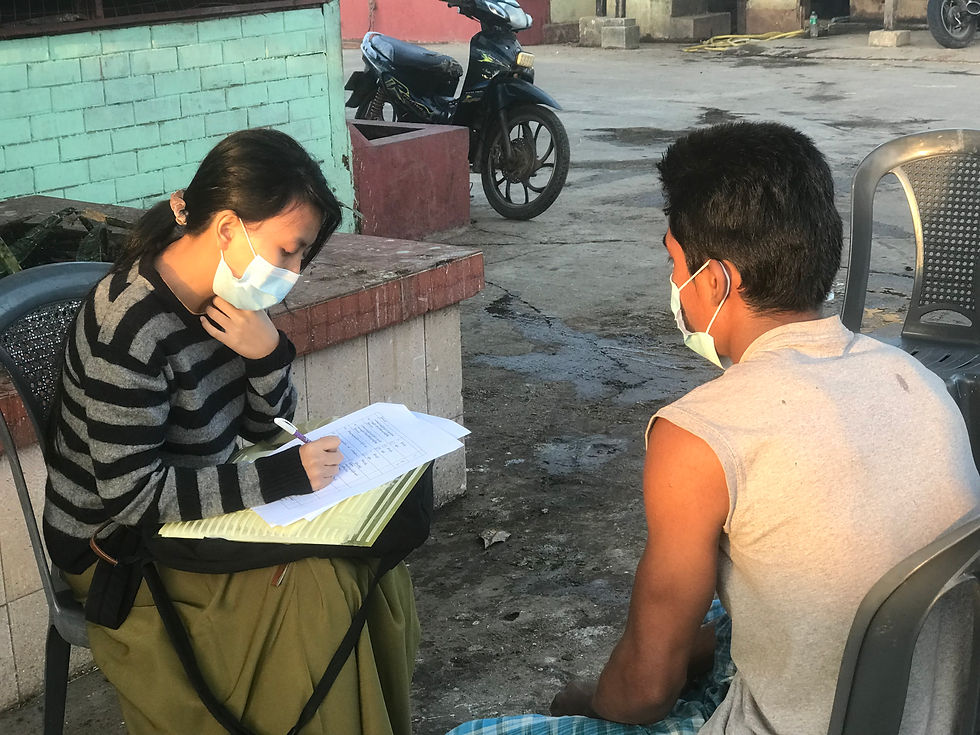Seropositivity of Leptospirosis and Related Occupational and Environmental Factors in Myanmar
- SEAOHUN

- Dec 27, 2022
- 3 min read
Updated: Jan 4, 2023
Seropositivity of leptospirosis and related occupational and environmental factors among abattoir workers in Myanmar: a prerequisite for one health approach control practices

Leptospirosis is a zoonosis of great importance of public health and considered one of the neglected tropical diseases affecting both human and animal populations. As this infection has occupational hazards for workers which keep direct or indirect contact with animals, mainly without adequately using protection measures, abattoir workers are on high risk of contracting leptospiral infection. Despite being prevalent as occupational zoonosis in resource limited setting like Myanmar, the information even for high-risk groups is scarce.
This cross-sectional study aims to detect seropositivity of Leptospira antibodies and related occupational and environmental factors among abattoir workers. A total of blood samples from 180 abattoir workers from five registered abattoirs with license type-B or type-C situating in Yangon Region were collected and those workers were also interviewed about their occupational and environmental variables. All blood samples were tested for detection of Leptospira antibodies by using SD BIOLINE IgM/IgG Immunochromatographic Assay. Then, the seropositive samples were transported to another laboratory for further serological examination by using Indirect Immunofluorescence Assay (IFA) to minimize the false positives.

Among 180 abattoir workers, 64% were from cattle, goat, sheep abattoirs and the remaining from pig abattoir. Most of them were in 18 to 34 years age group, males and urban residence. Around two-third had heavy exposure to blood, internal organs and viscera of animals and carcass due to their types of work such as slaughter workers, butchers and offal removers. Nearly half of workers did not wear any personal protective equipment (PPE) during work. Only 11.7% of workers had awareness on human leptospirosis. Twelve of 180 workers were seropositive of Leptospira antibodies, contributing to 6.7% (95% CI: 3.5%, 11.4%). Bivariate statistical tests revealed the significant association between the seropositivity and the occupational and environmental characteristics such as presence of heavy exposure to raw meat/ blood, duration of service in current work, habitude of smoking during work, habitude of eating during work and wearing PPE. Moreover, the marginally significant association was also observed between the factors such as the presence of mice or rat burrow at home or around neighbourhood, habitude of washing kitchen utensils before usage, and seropositivity.
Since most of the study workers were lack of awareness on human leptospirosis, the awareness raising program such as health education about leptospirosis especially its modes of transmission and prevention methods should be promptly and intensively provided. The findings also highlighted the proportion of workers who had habitude of wearing PPE was substantially low and, in addition, wearing PPE and presence of heavy exposure of animal blood were found as the significant occupational factors for seropositivity. The study team, hence, recommends that the workers should wear appropriate PPE while working. This is the first report of seropositivity of leptospirosis in abattoir workers in Myanmar. The findings of this project may provide the baseline information required for planning and implementing effective prevention and control strategies for zoonotic diseases such as leptospirosis among abattoir workers.
SEAOHUN 2022 Small Grants
Project team leader: Dr. Aye Sandar Mon, Assoicate Professor, University of Public Health, Yangon
Team members: Prof. Hla Hla Win, Rector, University of Public Health, Yangon, Prof. Mya Thandar, University of Public Health, Yangon, Dr. Myo Pa Pa Thet Hnin Htwe Aung, University of Medicine, Taunggyi, Dr. Aung Tin Kyaw, University of Public Health, Yangon
- Personal protective equipment, distancing, and group size standards in this photo were consistent with local public health guidance and COVID-19 status in the specific country and time it was taken. This may not reflect best practices for all locations where COVID-19 is still spreading. -















Comments